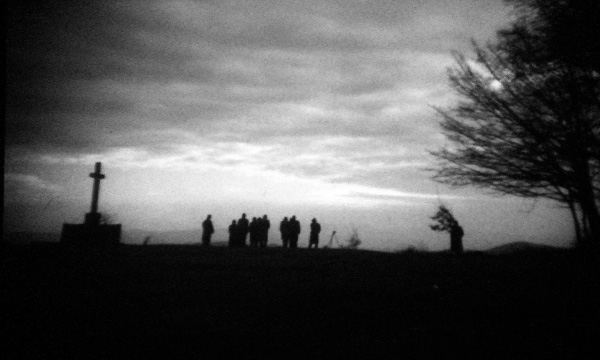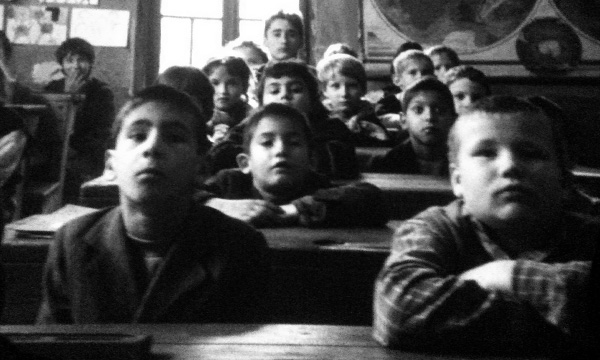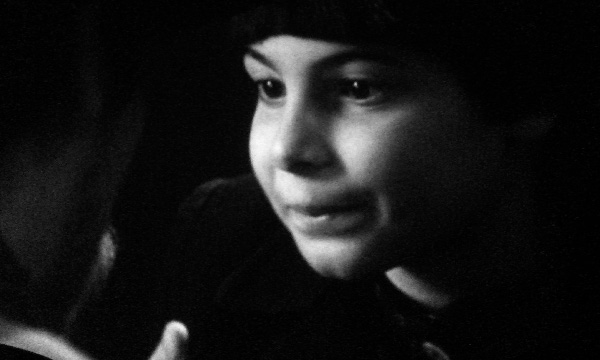Friedrich Dürrenmatt had written a film script entitled Es geschah am hellichten Tag (It Happened in Broad Daylight). Not happy with the ending he had devised for the first version, he decided to write a new one. This time he chose the novel format, completely changing the epilogue and the morals implied in the story as he had originally conceived it. In the first version, the events are resolved with sort of a conventional closure, with the main character proved successful, not leaving much space for any further reflection; in the subsequent novel (Das Versprechen, also known as The Pledge in English) the author exploits the story to explore the mechanics of detective fiction and the metaphysics of evil. In Das Versprechen, Dürrenmatt not only changed the ending of the story, he also moved the point of view on the events to another character.
Introducing Szürkület to the audience present at its first screening at the Reykjavík International Film Festival, Hungarian filmmaker Benedek Fliegauf compared the visual experience to the listening of a whale song. As a matter of fact, Fehér’s mesmeric feature works a lot like white noise. The hypnotic use of the all-pervasive sound and the aged-looking black and white cinematography unquestionably reinforce this impression.



György Fehér based his Szürkület on the film script by Dürrenmatt, not on the novel. Although Fehér followed the story quite faithfully, the impression is that of a total rewriting. Following the flowing of the events in the film without having read previously Dürrenmatt’s story is very difficult: Fehér didn’t choose to draw attention to the plot’s development at all. What the spectators are invited to examine is not a crime story, as they would be led to believe. The story is simply a frame or, rather, a leitmotif bringing together the various sequences. What Fehér composed is a visual suite, an entrancing trip through the dusky territories of the human soul.
Every scene has the quality of a vision. Suspensions and pauses set the pace of every sequence, while the camera pans and halts, peeps through interstices, doors and windows, like possessed by the eye of a dreamer. After a while the spectator’s sight adjusts to rules of stimulation offered by the film, forgetting about expectations normally triggered by laws of causality. The eye of the camera silently explores the actors’ faces like they were landscapes and landscapes like they were actors. Lights, shadows, lines, shapes, faces, broken words: all are like elements in somebody’s dream the viewer is given the opportunity to observe from an uncommon position.
It’s impossible to do justice to such an intense work of cinematic art in just a few lines, it’s impossible to describe the ineffable sensations it awakens. Watching Szürkület feels indeed like being inside somebody else’s dream.
Title: Szürkület (Twilight)
Year: 1990
Director: György Fehér
Genre: Crime
Country: Hungary
Runtime: 105 minutes
Language: Hungarian